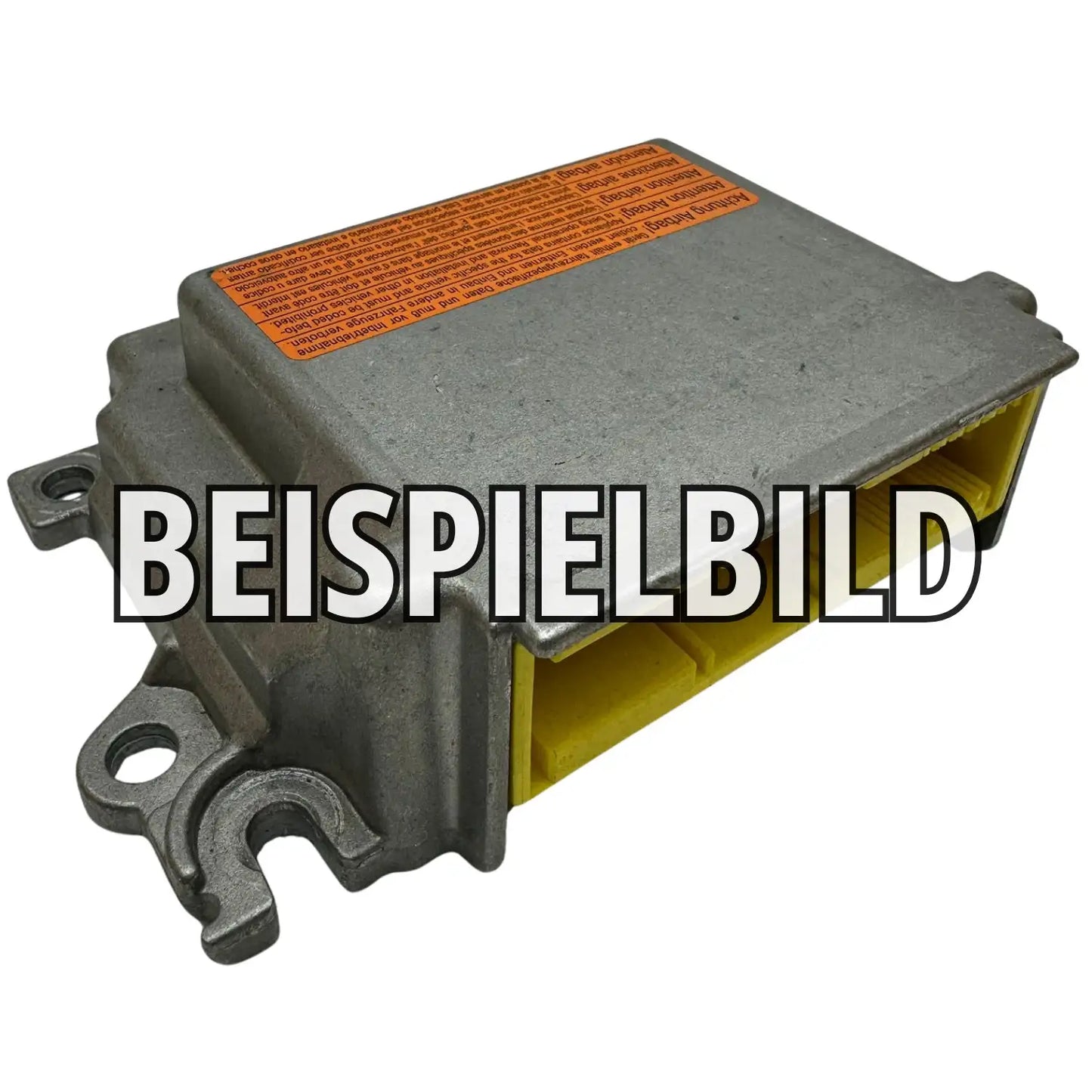Dodge Charger 7th Gen Airbag Control Unit Repair
What is a Dodge Charger 7th Gen airbag control module?
The Dodge Charger 7th Gen airbag control unit is the central safety unit in your vehicle, instantly activating all occupant restraint systems, such as airbags and seatbelt pretensioners, in the event of an accident. It continuously processes data from sensors, stores relevant crash data, and thus ensures the proper functioning of all safety-relevant components for occupant protection.
This module, also known as the SRS control module or Occupant Restraint Module (ORM), continuously monitors the status of the airbag system.
It is responsible for precisely controlling airbag deployment based on the severity of the impact and is critical to the safety of the vehicle occupants in the Dodge Charger 7th Gen.
Why is the Dodge Charger 7th Gen airbag control module defective?
The Dodge Charger 7th Gen airbag control module can fail because it stores crash data after an accident, triggering a fault condition, or internal electronic damage occurs due to age, moisture, or overvoltage. A failure will disable the safety systems and require professional repair or replacement.
After the airbag system is deployed, even in a minor impact, the control module stores a "crash data" record. This prevents reactivation and must be erased to repair the Dodge Charger 7th Gen airbag control module.
Other causes of a malfunction include internal memory errors, short circuits, or a faulty power supply. Such failures impair the self-diagnosis function and can activate the airbag warning light.
Common error codes for Dodge Charger 7th Gen airbag control unit repair
When diagnosing a faulty Dodge Charger 7th Gen airbag control module, system-specific B-codes typically appear, indicating internal issues with the module. These trouble codes are crucial for identifying the exact cause of the malfunction and initiating the necessary steps for repair or replacement.
- B1000 : This communication error signals that the airbag control unit cannot communicate properly with other vehicle systems, often due to internal module problems.
- B1001 : An internal memory error in the airbag control module means that data in the module cannot be stored or retrieved correctly, affecting the function of the system.
- B1002 : A short circuit to the airbag control module indicates an electrical malfunction within the module or at the connectors that is disrupting the power supply.
- B1013 : An EEPROM error in the control unit indicates damage to the non-volatile memory where important calibration and crash data is stored.
- B1040 : If the control module self-test fails, it means that the module did not successfully complete its internal diagnostic checks, indicating a serious defect.
- B1273 : This code reports a faulty power supply to the airbag control module, which may lead to unstable operation or complete failure of the module.
What part numbers are available for the Dodge Charger 7th Gen airbag control unit repair?
For Dodge Charger 7th Gen airbag control unit repairs, only verified OEM part numbers from Mopar are relevant to ensure proper function and compatibility. These specific numbers guarantee that you are receiving a genuine part for your vehicle, which is of utmost importance for safety.
The most common and 100% verified OEM part numbers for the Dodge Charger 7th Generation Airbag Control Module are: 68371750AA, 68371748AA and 68316744AA.
Another genuine Mopar part number that may be relevant for certain versions of the 7th Gen Dodge Charger is 56054077AH. All numbers mentioned are from Mopar (FCA), the original manufacturer.
It's important to check the exact part number of your old module or have it checked by a qualified mechanic. Other manufacturer part numbers, such as Bosch or Continental, are not reliably verified for this specific OEM control unit on the Dodge Charger 7th Gen.
Dodge Charger 7th Gen Airbag Control Module Compatibility and Installation
The airbag control unit is specifically designed for the 7th-generation Dodge Charger (model years 2011-2023) and must be precisely matched to the vehicle's vehicle identification number (VIN). After installation, recoding or programming by an authorized Dodge repair shop is usually required to ensure full safety functionality.
This control unit is compatible with various Dodge Charger 7th Gen models, including all-wheel drive (AWD) and rear-wheel drive (RWD) models. It supports various engines such as the 3.6L V6, 5.7L V8, and 6.2L V8 (SRT Hellcat).
Installation is typically centrally located in the driver's compartment, often under the center tunnel or in the dashboard area, to ensure optimal connection paths to all sensors. The module connects to the vehicle's CAN bus via special connectors.
Installation and the required coding should always be performed by qualified personnel. This ensures that the Dodge Charger 7th Gen's safety system functions properly after the airbag control unit is repaired or replaced, ensuring occupant safety.
- Choosing a selection results in a full page refresh.
- Opens in a new window.


